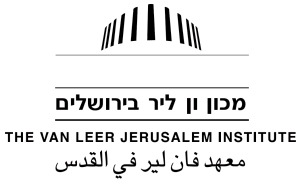[button style=’blue’ url=’tlv1.fm/telavivreview’ target=’_blank’]Subscribe To The Podcast[/button] [button style=’blue’ url=’tlv1.fm/content/the-tel-aviv-review/’ target=’_blank’]Previous Episodes[/button]
Dr. Fahima Abbas, a postdoctoral fellow in geography at the Hebrew University of Jerusalem, discusses the migration patterns of young and professional Arabs from Arab communities to predominantly Jewish urban areas and what impact it has on them, their communities of origin, and Jewish-Arab relations in Israel.
This season of the Tel Aviv Review is made possible by The Van Leer Jerusalem Institute, which promotes humanistic, democratic, and liberal values in the social discourse in Israel.
[/infobox]






There are two kinds of identity: active and passive. The former involves action and association, anything from going to games with fellow team fans to attending religious services and associated projects, to political action, to liberation groups. Passive identity is mere asserted label. The two types can elide into the other; one can be a fan alone, cheering to tv, then later cheer at a bar, with friends at home, or attend team related activities, including fund raisers, a gradation of passivity to activity; and, trying to escape what one is, one can go the reverse path. The value of passive identity is that it can readily morph into active identity, thereby opening access to social goods, from job starts to direct protection against outside others to meeting of potential mates.
I’d think, given the Palestinian conflict, Israeli Arabs would be quite hesitant to abandon associated passive identities, even when moving or commuting to places like Tel Aviv. Another round of Gazan rockets could turn most of the TA populace against them. One of the core functions of identity is protection against ostracism, for after ostracism comes actual harm, physical, economic, social. Passive (Arab associated) identity is a fall back plan if barriers once again move forward, as a bulldozer. This in itself leaves the commuting Arab Israeli somewhat ostracized. Moving into more mobile economic circles, he becomes alienated from Arabs staying in home towns, those wondering if he can be trusted in times of need; but within the circles of advance he is marginal, last come, first gone. Replacing “she” with “he” might make things worse in the home town but could make them better in the new circle, for women are seen as less threatening in times of violence, so less likely to be socially hit, even protected by some. Arab Christianity is a third house, creating a neutrality on the increasingly core Muslim/Jewish divide, thereby able to traverse both home town and developed Jewish economic worlds; so the interviewer notes that Christianity is a preferred acknowledged category among commuters.
Jews will generally want Israeli Arabs to forego passive home identities to enter their world; to earn trust, one must remove past allegiance, so there is no doubt as to where present investments are. But Arabs will see this as abjuring all refuge in times of mass crisis, just as Jews knew they needed their own identities during flares of attack by Christians over centuries, for Christians would never forget Jewish home identity no matter what the Jew professed. If you will later force identity upon me, why should I give up its latent potential now? So long as the Conflict regularly erupts into violence, Israeli Arabs will not be allowed to cross this gulf of both forced and thereby needed identity.